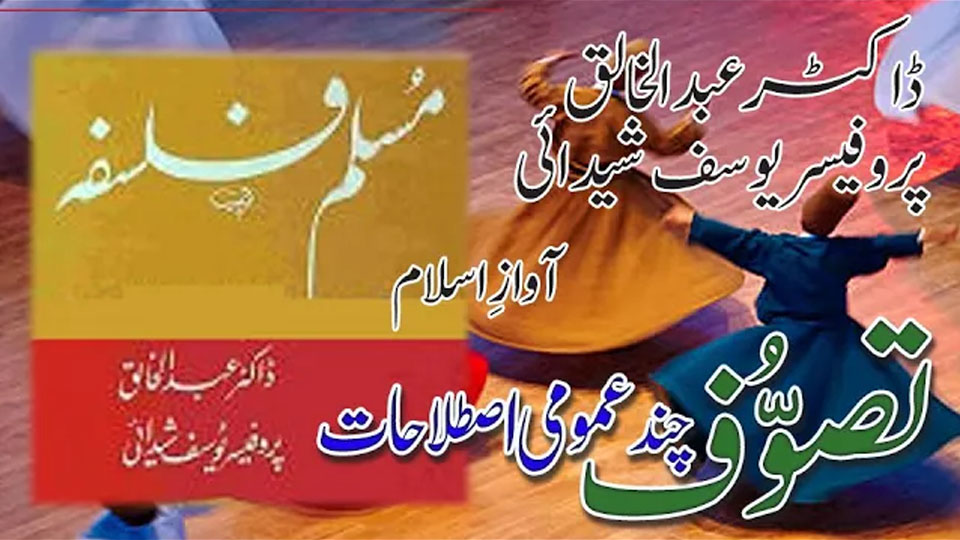Muslim philosophy is often a subject of intrigue for those seeking to understand the rich intellectual history of the Islamic world. It delves into the theological, metaphysical, psychological, ethical, and political thoughts of notable Muslim scholars, which are deeply rooted in the teachings of Islam. This comprehensive and profound philosophical tradition guides how one should live, think, and act, drawing its insights from Islamic law (Sharia). One of the finest works exploring these topics is the book Muslim Philosophy, co-authored by Dr. Abdul Khaliq and Professor Yusuf Shidai, which highlights the key philosophical contributions from prominent Muslim thinkers up to the 14th century CE.
The Influence of Islamic Philosophy
Islam is often described as a complete way of life, and when we examine its philosophical underpinnings, we see just how profound this claim is. The concepts presented in Islamic philosophy are not limited to religious beliefs but extend to all aspects of human existence. From the reality of life before the advent of Islam to the way Muslim philosophers like Imam Ghazali, Ibn Rushd, Al-Kindi, and Al-Farabi approached it, Islamic thought stands as a beacon of intellectual rigour.
In Muslim Philosophy, Dr. Abdul Khaliq and Professor Yusuf Shidai explore how these thinkers shaped not only the theological framework but also the metaphysical, ethical, and political theories that guided Islamic societies for centuries. These thinkers, in their respective eras, articulated their thoughts on topics such as freedom, the nature of God, the soul, and the cosmos, laying the foundation for an Islamic worldview that continues to influence contemporary thought.
The Distinction Between Western and Muslim Philosophies of Freedom
One of the key insights that emerges from the work of these scholars is the stark contrast between Western and Muslim philosophies, particularly in their understanding of freedom. Western philosophy often promotes the notion of freedom as an individual’s right to act without restrictions, a concept famously elaborated by thinkers like John Locke and Jean-Jacques Rousseau. In contrast, Muslim philosophy approaches freedom through the lens of submission to God’s will, with freedom defined not by the absence of constraints but by the ability to act by divine law.

This difference becomes even more apparent when considering the moral and ethical frameworks within each tradition. For Muslim thinkers, the concept of personal freedom is not an end in itself but rather a means to live a life of virtue, guided by Sharia. Here, freedom is intertwined with responsibility, social justice, and the well-being of the community.
The Impact of Sufism on Muslim Philosophy
In addition to the works of renowned philosophers, Muslim Philosophy also touches upon the impact of Sufism on Islamic thought. Sufism, or Islamic mysticism, is a spiritual path that emphasizes inner purification and the direct experience of God. The video associated with this topic introduces viewers to key terms in Sufism, shedding light on how this mystical tradition has influenced Islamic philosophy, particularly in its emphasis on personal spiritual growth.
Sufi scholars, such as Al-Ghazali, played a pivotal role in bridging the gap between traditional Islamic philosophy and the mystical practices of Sufism. Their works on metaphysics and the nature of the soul are still studied today and provide a deeper understanding of the human connection to the divine.
The Role of Muslim Thinkers in Shaping a Complete System of Life
What sets Muslim philosophy apart from other philosophical traditions is its emphasis on the integration of all aspects of life. In contrast to Western thought, which often compartmentalizes knowledge into separate disciplines, Muslim philosophers viewed knowledge as a unified whole. Every aspect of human existence, whether it be theological, political, ethical, or psychological, was interconnected.
As we study the works of Muslim philosophers, it becomes increasingly evident how they crafted a comprehensive system that guided individuals in all aspects of life. From ethics to politics, from personal responsibility to communal harmony, Islamic philosophy offers a coherent vision that helps individuals lead a life that is in harmony with divine principles.
Conclusion: A Timeless Guide for Humanity
In conclusion, Muslim Philosophy is not merely an academic exploration of ancient thought; it is a living tradition that continues to offer valuable insights for contemporary society. By examining the works of scholars like Imam Ghazali, Ibn Rushd, Al-Kindi, and Al-Farabi, one can gain a deeper appreciation for the intellectual depth of Islamic thought. The way these philosophers navigated questions of freedom, ethics, and spirituality demonstrates that Islam has provided humanity with a timeless guide to living a fulfilling, meaningful, and harmonious life.
Thus, Muslim philosophy remains a critical field of study, offering a pathway for those seeking a deeper understanding of life and its ultimate purpose.
If you’re interested in reading this book, click the link below for a free download.
https://drive.google.com/file/d/1spGUw_r2cbDY53zj4h-KTbAFHVYm_lT6/view?usp=sharing
If you’d like to listen to this book in audio format, click the CONTACT button below to get in touch with the AwazeUrdu team to order the audiobook.
Contact us:Click the link below to watch the video on Facebook as well.
https://www.facebook.com/share/v/qp56yPWMNP3J7hVu
Click the link below to watch the video on Rumble as
well. https://rumble.com/v5j69hx-sufisms-terminologies..html
اسلام ایک مکمل نظامِ حیات ہے۔ یہ بات ہم اکثرسنتے ہیں، مگراس کی گہرائی پرغور نہیں کرتے۔ دنیاکا کوئی معاملہ ایسانہیں، جس کےبارے میں ہمیں دینِ اسلام میں رہنمائی نہ ملتی ہو۔ یہاں تک کہ جس طرح قبل ازاسلام، زندگی کی حقیقتوں کواس دور کےعلماء نے فلسفیانہ انداز میں بیان کیا۔ مسلمان دانشوروں نےبھی اپنےاپنےادوارمیں مسلم فلسفےکوشریعت کی روشنی میں بیان کیا۔ ان مسلمان فلاسفروں میں امام غزالی، ابنِ رُشد، کُندی، فارابی وغیرہ کےنام نمایاں ہیں۔
ڈاکٹرعبدالخالق اورپروفیسریوسف شیدائی کی مشترکہ تصنیف” مسلم فلسفہ”میں چودہویں صدی عیسوی تک کےنامور مسلمان مفکرین کےالٰہیاتی، مابعدالطبیعاتی، نفسیاتی، اخلاقی اورسیاسی نظریات کوبیان کیاگیا ہے۔ دراصل فلسفہ بیان کرنےکی چیزہے۔ نظریات بنائے جاتے ہیں، پیش کئے جاتے ہیں،پھر ان کےمطابق اپنی زندگی کوڈھالاجاتاہے۔ مثلاً مغرب کافلسفہءِآزادی کچھ اورہے، جبکہ مسلم فلسفہءِآزادی اس کےبالکل برعکس ہے، زندگی کےتمام شعبوں میں مشرق ومغرب، مسلم وغیرمسلم کی یہ تفریق نمایاں ہے۔ جتنا جتناہم ان علوم کوپڑھتے چلےجاتے ہیں، حیرت بڑھتی جاتی ہے کہ اسلام نے کس طرح انسانوں کےلئے زندگی گزارنےکی راہ متعین کردی ہے کہ بھٹکنےکاامکان ہی ختم کردیاہے۔ کون ہے جو رہنمائی طلب کرے؟۔ اس ویڈٰیو میں تصوف کی کچھ عمومی اصطلاحات کے بارے میں بتایاگیاہے۔

